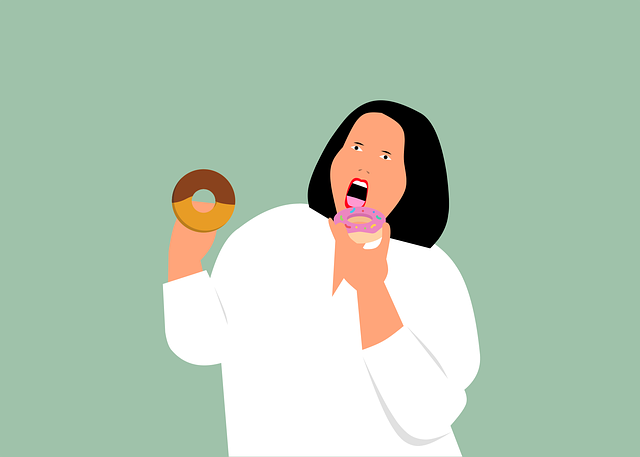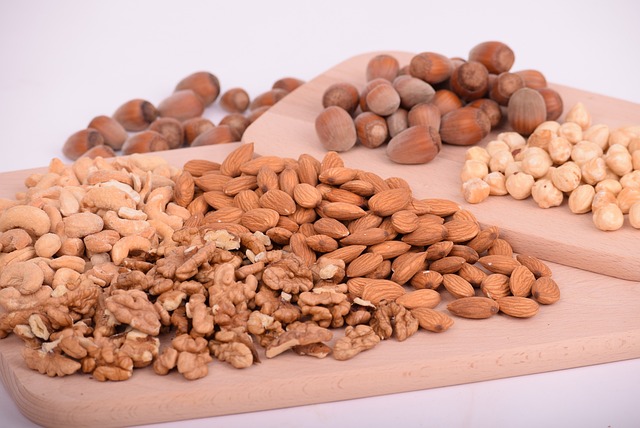The good news is that you can maintain your weight loss without dieting with a little forethought and dedicated work.
If you’ve reached your weight-loss or health-improvement goal, you might be looking for helpful ideas for the maintenance phase. After all, you’ve worked hard to reach where you are, and the last thing you want to do is undo all of your efforts.
While it may appear to be harmless, yo-yo dieting—also known as weight cycling—has been related to a range of health issues, such as sleeplessness, obesity, and an increased risk of cardiovascular disease and type 2 diabetes.
Instead of falling into this loop, here’s what you need to know to keep your weight reduced, including why people gain weight and methods you can utilize.
Why Do People Gain Weight?
It is not uncommon for folks to wonder what to do next after reaching their desired weight or health level. In reality, around 80% of persons who lose weight fail to sustain their weight loss over time.
It’s vital to remember that losing weight and keeping it off is more complicated than just counting calories in and counting calories out. Hormones play a part as well. Specifically, the hormone leptin, also known as the hunger hormone. To keep a healthy body weight, fat cells secrete leptin. The higher your body fat percentage, the more leptin your body produces.
Leptin levels fall when you lose weight. This causes your body to believe it is starving and leads you to feel hungry in order for you to eat. The increased hunger and appetite can cause you to overeat and regain the weight you lost.

People regain weight for a variety of reasons, including medical issues, hormone imbalances, and stress. They may also gain weight after following restricted eating plans or have not acquired sustainable eating habits.
Some people may even gain weight if they stop exercising. If any of these reasons sound familiar, it may be time to reconsider your weight-management strategy. Here’s all you need to know about why people acquire weight.
Following Dietary Restrictions
Restrictive diets can sabotage weight reduction in two ways. First, dramatically under-eating promotes quick weight loss, which creates a decrease in leptin (the hunger hormone), which drives you to eat more; and second, restricting yourself from eating any one meal or food type elevates that food to a pedestal, making it scarce.
This simply increases your desire for those foods. And if you skip meals during the day, you may wind up binging in the evening and eating more than you would have if you had eaten healthful foods all day.
In reality, excessive calorie restriction is frequently the root reason for stopping weight reduction. It is not the number of calories you believe you are consuming but the extra calories you ingest when you find yourself in front of the fridge or pantry when you are not satisfied.
This is why it is critical to losing weight while maintaining a slight calorie deficit—one that allows you to feel full and happy while working toward your weight loss objectives.
Lack of Long-Term Habits
One significant disadvantage of dieting is the lack of a plan for moving off the eating plan. Most eating programs include what to eat while following them, but what you eat afterward is just as important. This is why it is preferable to choose an eating plan that you can stick to for the rest of your life.
Following an extremely restrictive eating plan that you cannot see yourself sticking to for the long term is unsustainable and is not the ideal eating plan for you. Sustainable practices are critical for maintaining weight loss and breaking the yo-yo dieting cycle.
Furthermore, research shows that incremental changes to your diet and physical activity are more successful weight-loss measures than a major overhaul. In fact, researchers remark in an older study that a daily calorie deficit of 200 kcal or fewer may have the advantage of limiting the typical drop in metabolic rate associated with weight reduction while not raising appetite.
Looking for Quick Solutions
Remember. There are no magic drugs or quick remedies when it comes to losing weight. Although it may be tempting to pursue such promises, doing so may ultimately jeopardize your aims.
For example, some people use juice cleanses or fasts to kickstart their weight loss. These solutions are not part of a healthy diet and can lead to an unhealthy relationship with food. Before embarking on a cleanse or fast, discuss the benefits and drawbacks with your healthcare physician or a qualified nutritionist.
Furthermore, the implications of decreasing weight gradually versus dropping weight fast must be considered. People who lose weight fast have less body fat and more lean mass than those who lose weight slowly.
Stopping Exercise : Big No-No
If you employ exercise to help you achieve your weight reduction objectives, stopping abruptly without making modifications to your eating plan may result in weight gain. This occurs because fat reduction requires more calories burned than consumed. Weight gain may occur if you expend fewer calories but continue to eat the same amount.
To help you maintain your weight loss, you should stick to your eating plan or something similar after you attain your goals. If you feel like you are taking a break from working out, or if you’re tired or bored, a personal trainer or coach may help you devise a strategy that will allow you to take a break while still keeping your results.
How to Keep Your Weight in Check
To keep your weight stable, your intake of calories should be the same as the number of calories you burn during the day. You should avoid making drastic changes to your diet and exercise program. Instead, adopt gradual changes that will not result in significant weight gain. Allow yourself 6–8 weeks to reach your maintenance level.
Some people may discover that reducing weight is significantly easier than maintaining weight loss. Weight maintenance takes a lot of time and work. That is why it is critical to devise a strategy to assist you in maintaining your weight loss and achieving your health objectives.


Keep in mind that studies have shown that those who stick to a low-fat diet with plenty of fruits and vegetables are more likely to lose weight permanently. According to research, persons who are successful at sustaining their weight loss exercise more. Here are some extra ways to help you maintain your weight and go forward in your health quest.
Exercise on a regular basis to maintain weight loss
Whether or whether you employed exercise to help you lose weight, you could benefit from including regular physical activity in your daily routine. This is because you lose weight by successfully creating a continuous calorie deficit.
When you make adjustments to your routine, your calorie deficit may disappear, and your risk of weight gain increases. Exercising on a regular basis improves the number of calories you burn, which helps to prevent undesirable weight gain. This is known as energy balance.
Experts recommend that individuals engage in at least 3 hours of moderate-intensity physical activity per week, as well as two days of strength training activities. You can spread this out over the week as you see fit. Remember that the best exercise routine is one that you will actually do, so pick something you enjoy.
Keep an Eye on What You Eat
People frequently bounce and revert to their old eating habits after losing weight. This is a definite method to acquire weight and increases your chances of weight cycling. A good meal plan is one that you can stick to for the rest of your life.
There are several methods to be attentive to what you consume. Tracking your meals or calculating calories, for example, might help you monitor what you eat and support your goals. However, these steps are not for everyone. They can, in some cases, lead to undesirable ideas and behaviors.
If you believe that these behaviors are harmful to you, you should consult with a mental health practitioner or a certified dietician. It may also be beneficial to try mindful or intuitive eating practices, in which you pay attention to what you are eating and relish every bite. Furthermore, intuitive eating is based on liberating people from harmful food attitudes in order to create judgment-free eating.
When you practice intuitive eating, you’re teaching your body to respond to actual hunger and satiety cues rather than emotional ones. This exercise will also help you learn to recognize hunger, fullness, and satisfaction sensations. If you want to learn more about mindful or intuitive eating, you should speak with a mental health practitioner or a registered dietitian who is trained in these areas.
Take an 80/20 approach.
A sustainable meal plan includes items that you enjoy. It is a combination of nutritional foods that keep you full and content, as well as certain comfort foods. The 80/20 rule states that 80% of your meals should be balanced and nutritious, while the remaining 20% should include less healthful items.
This could include eating balanced meals during the week and enjoying a pizza night with your family on Fridays or having a drink or two with your mates on the weekends.
Think about Strength Training.
Though many people identify strength training with muscle gain, it can also be used for weight loss and maintenance. This is because having greater muscle means burning more calories even when at rest. Strength exercise also promotes energy balance and can aid in weight loss.
Continue your strength training practice as usual if you are experienced in resistance training. If you haven’t attempted weight training before, talk to your doctor before starting any new fitness plan.
They can assist you in determining your limitations. Meanwhile, a personal trainer or coach can assist you in developing a program that is tailored to you and your lifestyle.
Be ready for setbacks.
It is normal to have setbacks such as a plateau or weight fluctuations. It’s how you handle setbacks that make all the difference.
Instead of giving up in frustration, keep your cool and continue on your way. Any changes in body weight normally disappear within three to five days. If the scale continues to rise over that mark, it could indicate muscle gain or increased body mass.
Non-scale wins, such as how fantastic you feel in your clothes or having the stamina to chase after your children, can serve as reminders of your progress. Give yourself some grace if you find yourself feeling bad about overindulging. It is critical to remind oneself that a setback is not the end of the world in order to relieve stress and avoid giving up.
To Conclude
It feels nice to have accomplished your weight loss goals. But the last thing you want to do is undo all of your hard work by failing to plan ahead of time.
Seeking the advice of a healthcare professional, such as a registered dietitian, nutrition coach, or mental health professional, can assist you in developing a program that is most suited to you and your lifestyle.
They can assist you in changing your eating habits and developing a healthy relationship with food.

